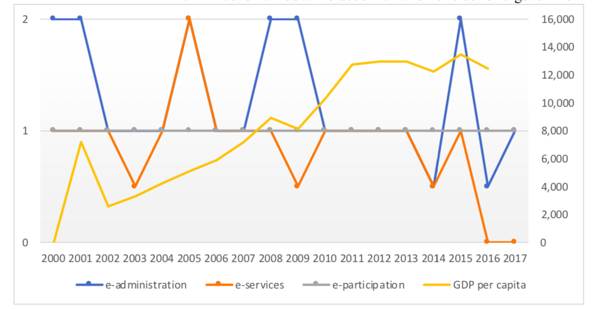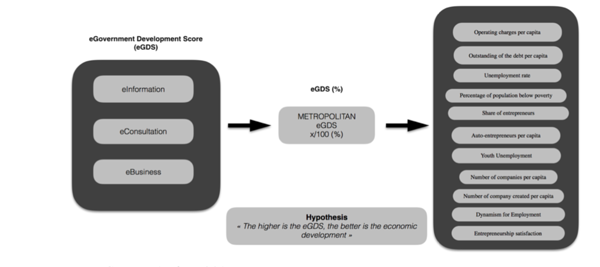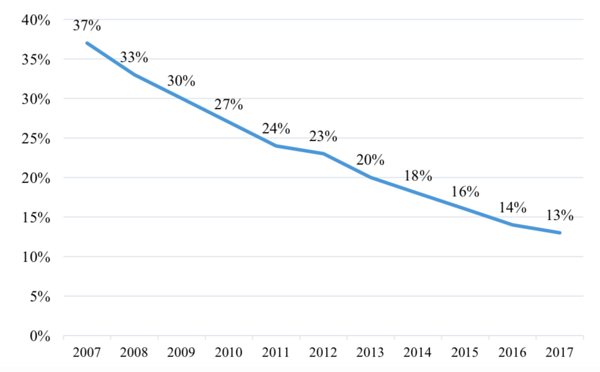Modern Democratic Freedom in the Digital Age: the Conditions and Prerequisites of Electronic Government (De-)centralization
This thesis discusses the process of administrative (de-)centralization of electronic government in 11 democratic federations. The research is comparative in nature and process-tracing was used as a primary data analysis method in order to identify the factors that led to the centralization or decentralization of the three electronic government areas.
Author: Mariia MaksimovaAssessing the web-portal type of eGovernment structures and measuring their socio-economic impact on the French Metropolitan Park
This research study aims at assessing the degree of eGovernment development in the French Metropolitan Park, by developing an eGovernment Development Score (eGDS) focused on web-portal analysis while contributing to the comprehension of the relation between the quality of eGovernment structures and the economic development based upon a set of pre-selected economic indicators.
Author: Kevin Chavanne
Analysis of usage of public sector e-services in the EU: case study of Estonia
The objective of Indrek Õnnik's MA thesis is to rely on statistical analysis in order to see if usage of public sector e-services can be elevated as certain capabilities of people are increased. These factors are digital skills, access, trust, awareness of control mechanisms and socio- demographic characteristics. The thesis will focus on public sector e-services and also evaluate the impact of transparency and control mechanisms to public sector e- services.
Author: Indrek Õnnik



